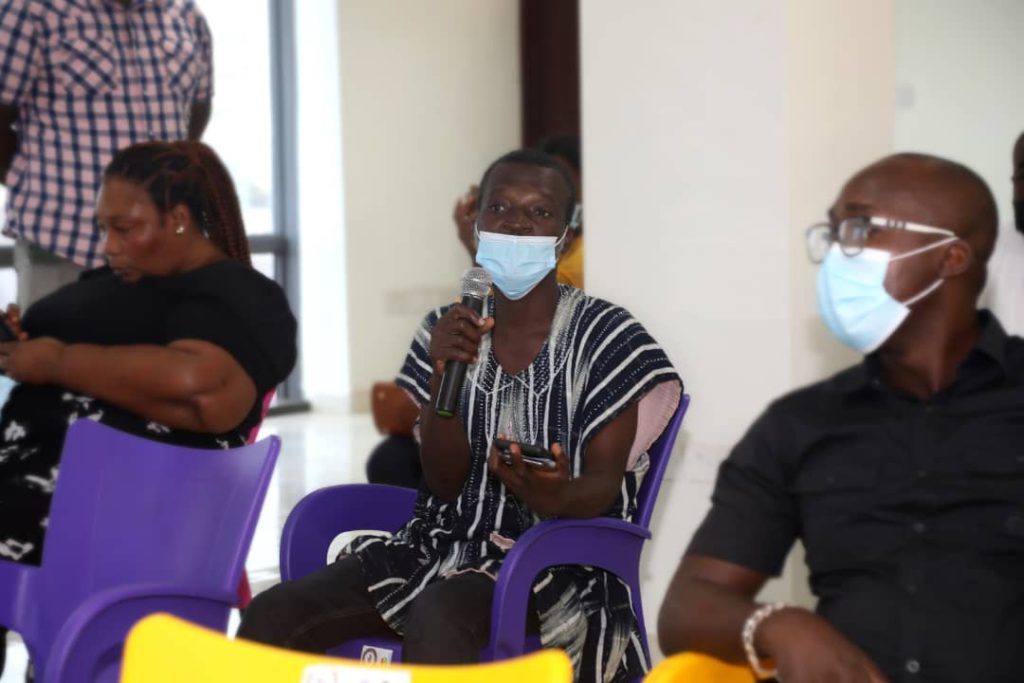The Food and Drugs Authority (FDA) as part of its regulatory mandate to protect public health and safety has taken several steps to ensure compliance at the various ports of entry.
The FDA’s Centre for Import and Export Control (CIEC) this year declared its” Zero Tolerance for Unregistered Imported Products” policy to ensure that all FDA regulated products that come into the country are registered prior to clearance before they are cleared to go into trade.
Currently, 70% of all imported products are registered with the FDA leaving the 30% which represents goods that enter that country as personal effect, consolidated FDA regulated products and other devices.

Having implemented this policy with significant success, the FDA has in recent times observed a rather worrying trend where products meant for commercial purposes are cleared at the ports under the guise of ‘personal effects’.
The Authority has observed that some of these products that come in as ‘personal effect’ end up in trade, which is in contravention to the Public Health Act, Act 851 as far as imported products are concerned.

Furthermore, Freight Consolidators commonly known as “door-to-door” operators who by practice, aggregate regulated products from individuals into a single container have been found to be engaging in the activity of clearing unregistered products in drums and other receptacles also under the guise of ‘personal effect’ for sale across the country.
The registration of products is to ensure the safety, quality and efficacy of the product for use and as such these practices of evading the registration process put the public at risk as far as public health and safety is concerned.

To further augment the enforcement of the zero tolerance for unregistered imported products on the Ghanaian Market, the FDA together with other relevant institutions have established a set of guidelines to help streamline the importation of ‘personal effects’ into the country.
This guideline seeks to spell out the volume and quantity of products that will qualify as ‘personal effects’ before entry into our various ports.
To implement these guidelines, the FDA has invited the various stakeholders to engage them on the way forward with its implementation to ensure the protection of public health and safety.
Latest Stories
-
World’s oldest boomerang doesn’t actually come back
3 hours -
UK to host Trump for full state visit later this year
3 hours -
Deadly airbag fault sees 2.5m cars recalled in France
3 hours -
Burial of Zambia’s ex-president in South Africa halted at last minute by court
3 hours -
Asiedu Nketia says EC with Jean Mensa at helm ‘Must be reset’
4 hours -
‘The entire EC leadership must go; they are not fit for purpose’ – Asiedu Nketia
4 hours -
Banks record GH¢4.3bn profit in April 2025
4 hours -
Banks shareholders’ funds grew by 42.6% to GH¢43.9bn in April 2025
4 hours -
Banks NPL declined to 23.6%, but total NPL stood at GH¢21.7bn in April 2025 – BoG
5 hours -
‘This EC is not fit for purpose’ – Asiedu Nketia demands EC overhaul
5 hours -
Government must build a second CBM to enable vessels discharge quickly, eliminate Leycan bureaucracy – COMAC Chairman
5 hours -
At least eight killed and hundreds hurt as Kenya protesters battle police
5 hours -
Ghana lacks capacity for 6-month strategic fuel reserves – COMAC Chairman
5 hours -
Small-scale miners urge fairness in commendable anti-galamsey fight
6 hours -
Murray wants to shield kids from ‘damaging’ social media
6 hours

